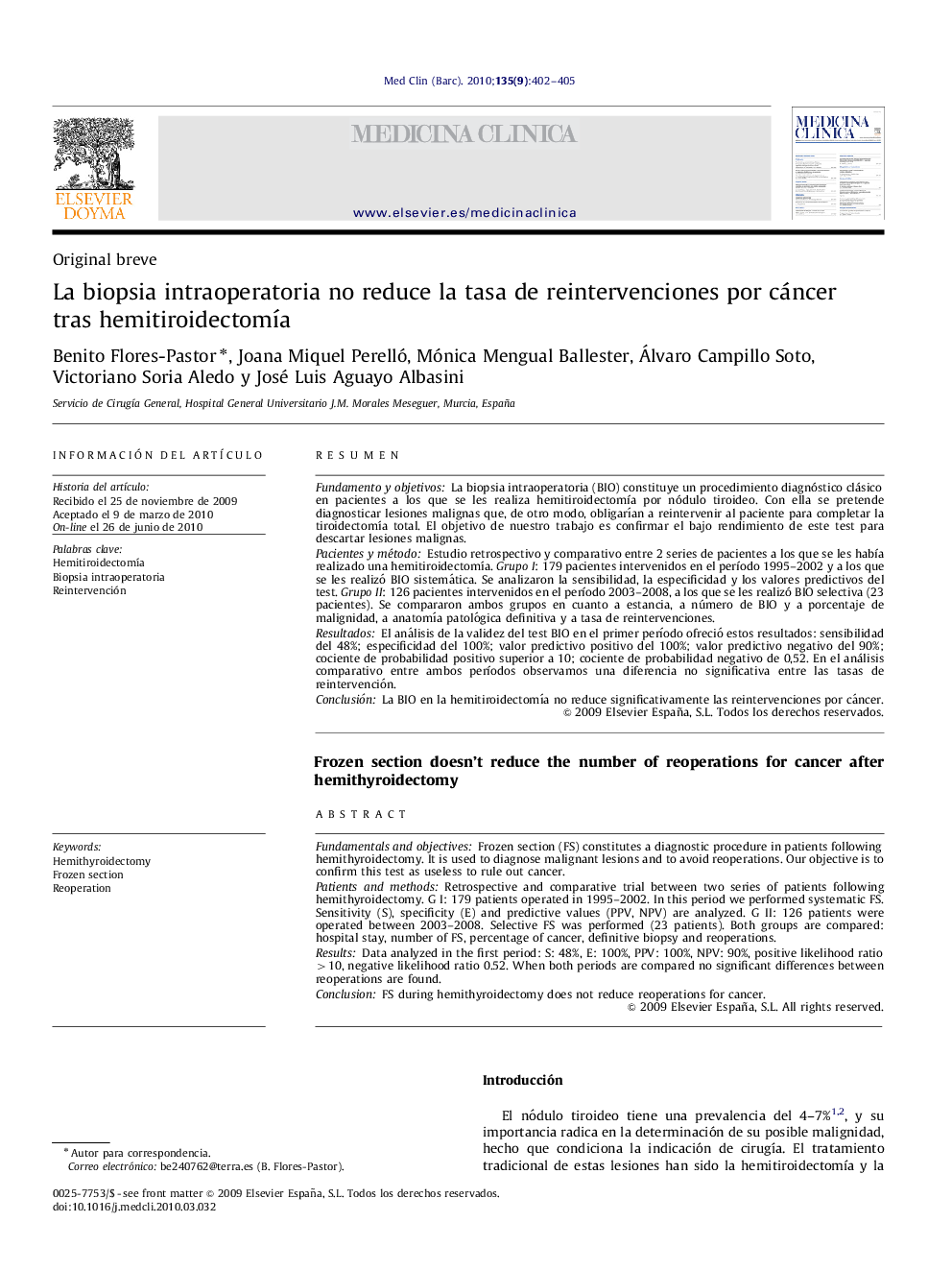| Article ID | Journal | Published Year | Pages | File Type |
|---|---|---|---|---|
| 3798740 | Medicina Clínica | 2010 | 4 Pages |
ResumenFundamento y objetivosLa biopsia intraoperatoria (BIO) constituye un procedimiento diagnóstico clásico en pacientes a los que se les realiza hemitiroidectomía por nódulo tiroideo. Con ella se pretende diagnosticar lesiones malignas que, de otro modo, obligarían a reintervenir al paciente para completar la tiroidectomía total. El objetivo de nuestro trabajo es confirmar el bajo rendimiento de este test para descartar lesiones malignas.Pacientes y métodoEstudio retrospectivo y comparativo entre 2 series de pacientes a los que se les había realizado una hemitiroidectomía. Grupo I: 179 pacientes intervenidos en el período 1995–2002 y a los que se les realizó BIO sistemática. Se analizaron la sensibilidad, la especificidad y los valores predictivos del test. Grupo II: 126 pacientes intervenidos en el período 2003–2008, a los que se les realizó BIO selectiva (23 pacientes). Se compararon ambos grupos en cuanto a estancia, a número de BIO y a porcentaje de malignidad, a anatomía patológica definitiva y a tasa de reintervenciones.ResultadosEl análisis de la validez del test BIO en el primer período ofreció estos resultados: sensibilidad del 48%; especificidad del 100%; valor predictivo positivo del 100%; valor predictivo negativo del 90%; cociente de probabilidad positivo superior a 10; cociente de probabilidad negativo de 0,52. En el análisis comparativo entre ambos períodos observamos una diferencia no significativa entre las tasas de reintervención.ConclusiónLa BIO en la hemitiroidectomía no reduce significativamente las reintervenciones por cáncer.
Fundamentals and objectivesFrozen section (FS) constitutes a diagnostic procedure in patients following hemithyroidectomy. It is used to diagnose malignant lesions and to avoid reoperations. Our objective is to confirm this test as useless to rule out cancer.Patients and methodsRetrospective and comparative trial between two series of patients following hemithyroidectomy. G I: 179 patients operated in 1995–2002. In this period we performed systematic FS. Sensitivity (S), specificity (E) and predictive values (PPV, NPV) are analyzed. G II: 126 patients were operated between 2003–2008. Selective FS was performed (23 patients). Both groups are compared: hospital stay, number of FS, percentage of cancer, definitive biopsy and reoperations.ResultsData analyzed in the first period: S: 48%, E: 100%, PPV: 100%, NPV: 90%, positive likelihood ratio >10, negative likelihood ratio 0.52. When both periods are compared no significant differences between reoperations are found.ConclusionFS during hemithyroidectomy does not reduce reoperations for cancer.
